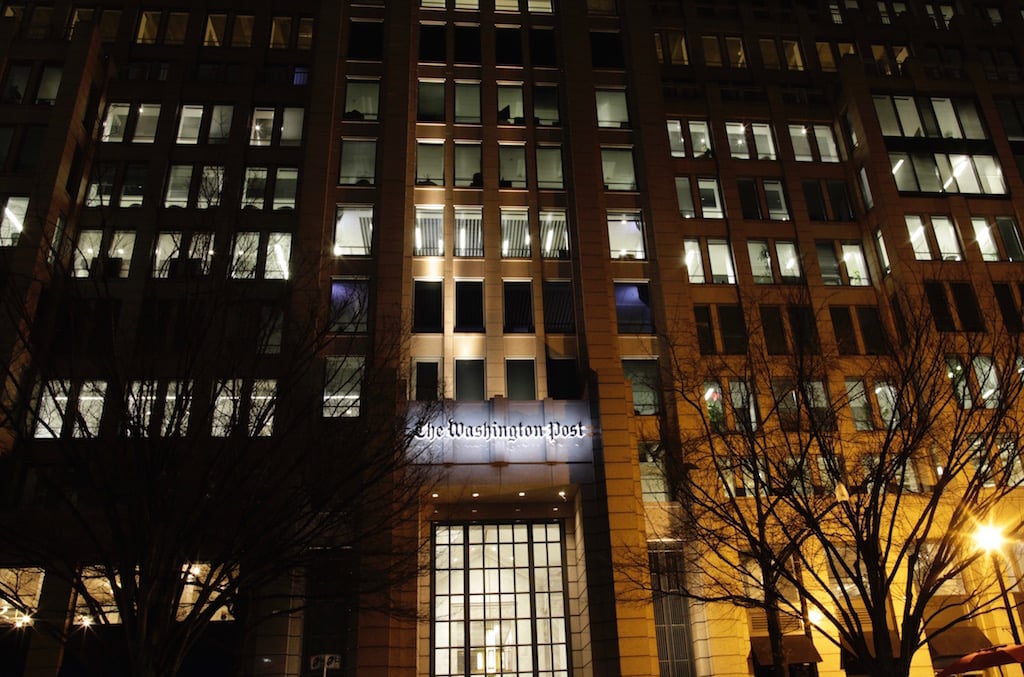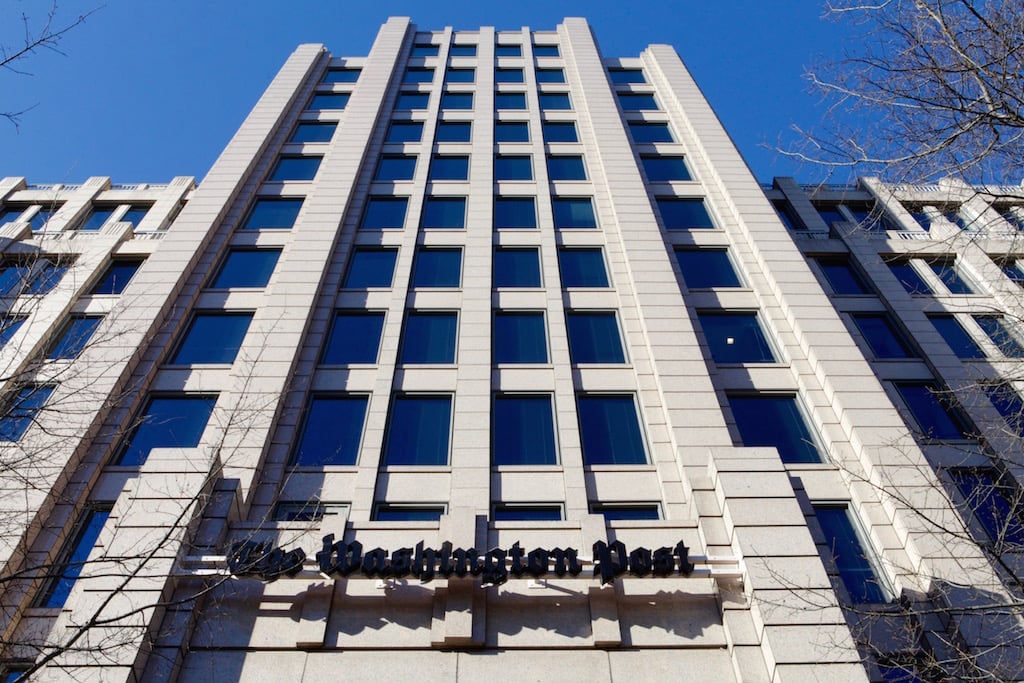The news that Washington Post Executive Editor Marty Baron would retire at the end of February was greeted with the most sustained outpouring of encomia since Philip Rivers hung up his cleats a week earlier. Baron, the Post‘s boss since 2013, was credited with reviving the storied paper after years of declining morale and finances, was called “fearless” more often than William Wallace, and was even played by Liev Schreiber in an Oscar-winning movie.
The backward-looking hosannahs hadn’t even stopped though, before the much juicier—and much more journalistically iffy—forward-looking phase had begun: The guessing game over Baron’s successor. Of course, as with any high-profile job hunt in a gossipy environment like a media organization, the people engaged in the speculation (a nearly 1,000-person newsroom full of folks who are professionally trained to sniff out rumors) are not the ones who actually get to pick (that would be Post publisher Fred Ryan).
All the same, the smart move is to take the names tossed around by the Great Mentioner and then consider some of the factors likely to shape the hiring process at this singular institution.
Who People Are Talking About:
Many in the newsroom would be overjoyed if former Post managing editor Kevin Merida returned from the Undefeated, which he got off the ground in 2016, but by all accounts he enjoys his current gig, ESPN has reportedly signaled it will fight to keep him, and he’s also a rumored contender for the top job at the Los Angeles Times. One person I spoke with equated the hopes around Merida returning to Democrats in the Trump years pining for President Obama.
Among internal candidates, people in the newsroom tend to think national editor Steven Ginsberg is the person to beat. Other names I wouldn’t be surprised to see in the mix: managing editor Cameron Barr, executive features editor Liz Seymour, and foreign editor Douglas Jehl. Of course, being an internal candidate is a mixed blessing—on the one hand, people know and presumably love you. On the other hand, being known means it’s harder to fantasize about someone being a superstar, which you can do with an external.
Another wild idea I heard for an external candidate: Politico co-founder John Harris, who famously left the Post after it passed on the idea of creating an “ESPN of Politics.” The person who coined that phrase? Former Allbritton Communications Company CEO and Politico rainmaker Fred Ryan, who might enjoy snaking a splashy name from his old employer.
There are other prodigal Posties whose name popped up often in my conversations. Anne Kornblut, a former newsroom star who left in 2015 for Facebook, could presumably repatriate with some key insights into social media’s inner workings. (The idea is somewhat outré not because of any strike against Kornblut, but because many people in news orgs feel burned by Facebook and aren’t especially eager to reconcile.) Former managing editor Emilio Garcia-Ruiz left last summer to run the San Francisco Chronicle, though you have to wonder whether he’d have split if he wanted Baron’s job, which has been in the air for a while.
Elsewhere, a number of well-credentialed traditional journalists have been mentioned: People like Nancy Barnes, the editorial director/VP of news at NPR and former Houston Chronicle boss, Milwaukee Journal Sentinel Editor George Stanley, or former Seattle Times Executive Editor (and current dean of Temple University’s communications school) David Boardman are names I’ve heard bruited about regarding folks who could be up to the task. Maybe LA Times editorial page editor Sewell Chan, or New York Times deputy managing editor Carolyn Ryan, or National Geographic editor Susan Goldberg? The mentions are flying, people!
What Might Factor Into the Decision:
While there are obvious criteria for a post-Baron search—news judgment, thinking around corners, experience that translates into managing a very important 1,000-or-so-person newsroom among them—many of the qualifications and machinations around the Post‘s top editor are harder to pin down. Here are a few factors for Post Kremlinologists to consider as we wait for clues about who’ll land one of the most important jobs in town.
The Bezos question
The Post‘s owner runs this other company you might have heard of where hiring can take a long time and candidates go through many layers of vetting. Bezos will be of course be involved in filling the top position at his prestigious side project—though he’s far less involved in the Post‘s daily mix than fellow mogul Rupert Murdoch can be with his news properties. If you were the world’s richest (or is it second-richest?) person, wouldn’t you want someone who has the standing in the news business that would allow you to say “Don’t call me, call X” when the President throws a hissy fit over Post coverage or some muckety-muck bends your ear at Davos to complain?
The energy question
Baron started in journalism at a time when a bell would ring in many newsrooms in the afternoon, signaling the deadline to get articles into the print paper and thus land on readers’ lawns the next morning–anything after that would likely wait another day and a half. Now newsrooms—not unlike companies that promise same-day delivery—face infinite demand, and managers have to be able to balance staffers’ workloads to meet it. Multiple Post staffers have told me over the years about sending Baron an email in the dead of the night, not expecting an answer till the next morning, and hearing back immediately. Even under a presidential administration that’s determined to be boring, the Post‘s need to be able to deliver earth-shaking scoops at all hours will remain.
The personality question
There was a time when having an editor who could be the high-profile face of a news organization was a significant plus. But the days of big personalities like Ben Bradlee running newsrooms are also likely over. Baron’s predecessor, Marcus Brauchli, was so low-key some staffers called him “ghost dad,” and Baron wasn’t exactly the type to command a room at the Round Robin Bar. The ability to listen (or, just as important, make your subordinates think you’re listening) will be increasingly important as newsrooms, especially those led by middle-aged white men, look to break old-fashioned power dynamics that kept women and people of color out of decisions about how coverage will be shaped. Which leads us to…
The diversity question
A big percentage of the names bouncing around right now belong to people who are white. There’s tremendous pressure on the news biz to make room for people outside the central casting idea of what a newspaper editor looks like (see: John Harris) or to look outside traditional publications and into podcast networks, web-native publications, or other media for leadership. Could Ryan find someone with that kind of experience who could also run one of the US’s biggest and most important newsrooms?
The no-drama question
The Post has been relatively scandal-free under Baron, something that has to have pleased the customer-obsessed Bezos. Maintaining that reputation would probably ice out the idea of hiring a top editor like former New York Times opinion honcho James Bennet, who piled on controversies before finally getting cashiered after his section published a now-infamous op-ed by Senator Tom Cotton. (It probably won’t help that Jennifer Barnett, who worked under Bennet at the Atlantic, just published a much-shared essay about what she characterized as Bennet’s alienating management style, a bill of particulars that includes the phrase “rage problem.”)
When We’ll Get Some Clues
The Washington Post was once a media reporter’s dream, the leakiest news organization you could possibly hope to cover. The turf wars! The gossip! People texting me what the brass said in meetings! I miss it terribly. In recent years, the Post‘s PR department has grown ever-more skilled at interdicting pesky inquiries and controlling the flow of information even when it comes to entirely legitimate questions about the Post‘s editorial processes. And with staffers all home until at least June due to the pandemic, there’s zero possibility for a tip from someone who spotted a candidate in the office or for the tea to spill out of the cubicles and into a regional lifestyle magazine’s blog posts. This dynamic will suit Ryan and Bezos, who often declines comment to the Washington Post, very well. As Joe Pompeo wrote for Vanity Fair, the actual decision-making process is so far from the newsroom’s view that it’s essentially a “black box.” Meaning that if you’ve read this far, there’s a strong chance you’ve wasted your time.



















